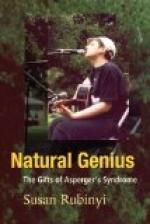The day was brilliantly bright, and the air so pure and bracing that it did the lungs good to breathe. So I made my way out of counting-house and street for a walk. I ascended the dry, crumbling hills which with long, deep gullies and breaks in them, and friable soil, looked as if they were ready to tumble into pieces at the first shake of one of those earthquakes so frequent in the country. On the road, chained gangs of surly convicts were at work, and some smart-looking soldiers, in blue and white, came marching along! Caravans of mules, laden with goods, produce and water casks, trotted on, and here and there rode a dashing Chilian cavalier on his prancing steed, or a dapper citizen on his steady cob. In a ravine between the dry hills there trickled the smallest possible stream. Above, some water carriers were slowly filling their casks, while the mules patiently waited for their burdens; below, was a throng of washerwomen, beating their clothes upon the stones, just moistened by the scant water which flowed over them, and interchanging Spanish Billingsgate with each other and a gang of man-of-war sailors.
Frightened away by the stony stare of the English occupant from an imposing-looking residence on the top of the hill, I crossed the road and entered the private hospital. Around a quadrangle, laid out in gardens beds there was a range of low two story buildings. Some bleached sailors, in duck trowsers and blue jackets, were about; one was reading a song-book, another his Bible, and a third was busily making a marine swab out of ropes’ ends. Among the convalescents, out on the balconies to catch a breath of the pure air, was a naval officer in a gilt cap, reading a novel; and all looked snug and encouraging. On entering, I asked the attendant, a gaunt-looking Englishman, who in his musty black suit, was not unlike a carrion crow or a turkey buzzard, whether there was any serious case of illness in the hospital. “There are two consumptives,” said he, “who’ve been a deceiving us for the last two weeks.” He seemed to think it a very base fraud that these two consumptives had not died when he and the doctor thought it was their duty to do so, some fortnight before.
Coming from the one hill to another, I reached a miserable quarter of the town, called by the sailors the “foretop.” It was composed of rude mud hovels, stuffed with a population of half-breeds, a half-naked gipsy-looking people, grovelling in the dirt, and breathing an atmosphere reeking with the stench of filth, garlic and frying fat. I was glad to escape, and get to the “Star Hotel,” where, refreshing myself with a chop and brown stout, I could fancy myself, with hardly an effort of the imagination, taking my dinner at an ordinary in the Strand.
TRANSLATIONS.
BY THE REV. THEODORE PARKER.
I.
TWO LOVERS.




